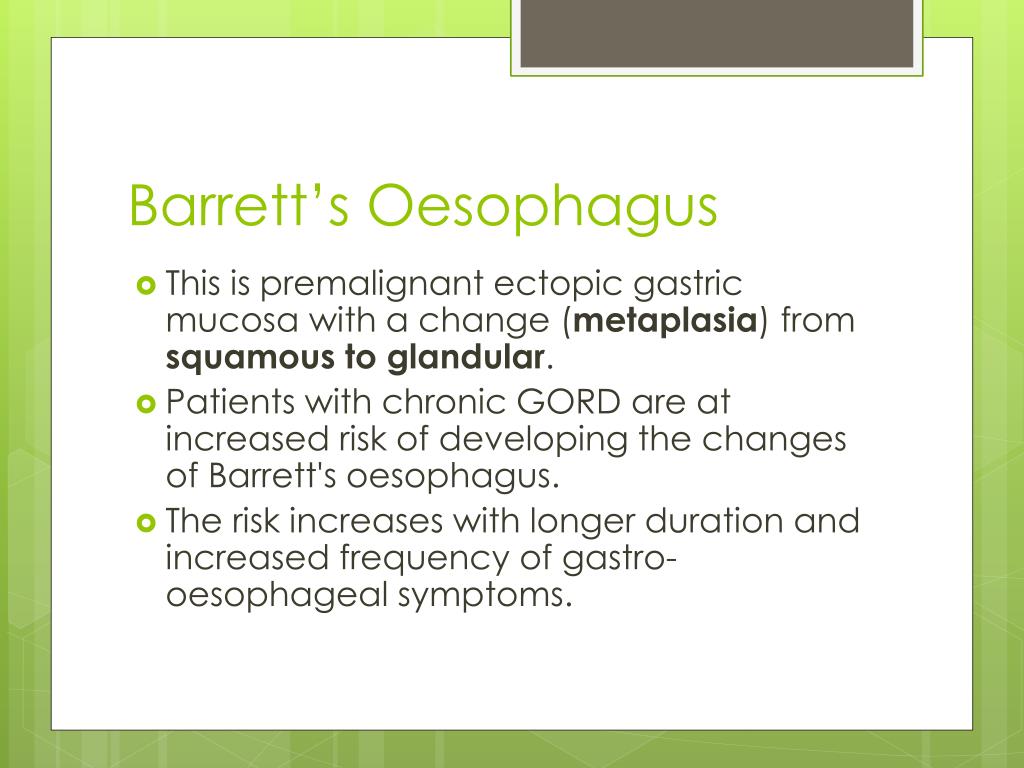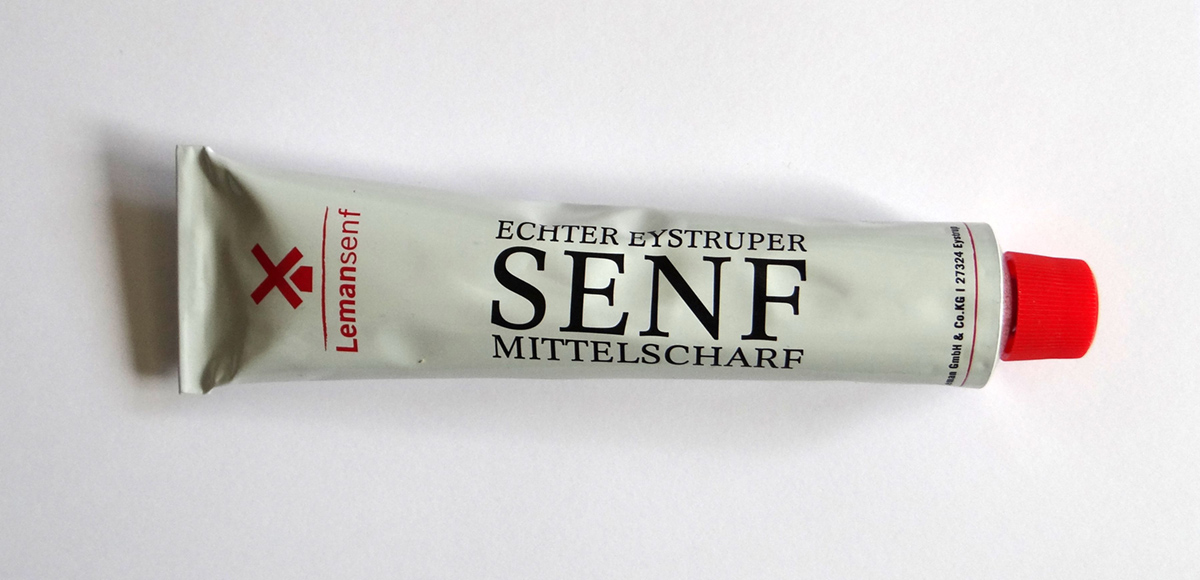


This pain is caused by the sensitivity of oesophageal mucosa to acid, and by spasms of the oesophageal sphincter.The pain is aggravated by drinking alcohol and hot drinks, and by bending over. May be worse on lying down. The pain is usually relieved by antacids. Dyspepsia – ‘Heartburn’ – retrosternal chest pain, particularly after eating.Dietary factors – fat, chocolate, alcohol and coffee all relax the lower abdominal sphincter.Increased intra-abdominal pressure – this means that obesity and even pregnancy are proven pre-disposing factors.Delayed gastric emptying – this is usually present, but the reason why it occurs is unknown.This effect can be exaggerated by a hiatus hernia, because gastric contents can become trapped within the hernial sac. It increases the amount of time that oesophageal muscoa will stay in contact with acid for. Delayed oesophageal clearance – this is present in many people with oesophagitis, and often remains after treatment for the condition.(see Barrett’s oesophagus for more information) Almost all patients with oesophagitis or Barrett’s oesophagus will have a hiatus hernia. It is a congenital defect, where part of the stomach extends above the level of the diaphragm. Hiatus Hernia – this is present in around 40% of the general population and often causes no problems.LOS tone doesn’t increase when the patient is lying flat – as would normally happen.The natural angle between the cardia and the oesophagus will also prevent some reflux. Also, the action of the diaphragm contracting may help to close of the bottom of the oesophagus, and the folds of the stomach also offer some sort of protection. It is even capable of increasing its normal tone is response to increased intragastric and intra-abdominal pressures. Lower oesophageal sphincter (LOS) – This is formed by the bottom 4cm or oesophageal smooth muscle.Normally this is contracted at all times, except during swallowing.There are several mechanisms by which GORD can occur: Dysfunction of the lower oesophageal sphincter (LOS).Eating certain foods – fat, chocolate, caffeine.GORD resulting in heartburn affects about 30% of the population.
#GORD VS GERD LICENSE#
Image modified from original images taken from SMART by Servier Medical Art by Servier and is licensed under a Creative Commons Attribution 3.0 Unported License Epidemiology GORD – gastro-oesophageal reflux disease. helicobacter pylori, stricture) – which usually involves h. It is important in patients with persistent symptoms to investigate for an underlying cause (e.g. Treatment typically consists of lifestyle advice, ant-acids and proton pump inhibitors (PPIs). In some cases, the normal squamous epithelium may be replaced by a columnar epithelium, similar to that found in the stomach. The oesophagus may become inflamed, reddened and ulcerated, although the level of tissue damage is not related to the severity of symptoms. There is also often decreased gastric emptying. Certain foods make the sphincter less likely to contract. The presence of a hiatus hernia increases the risk, but not everyone with a hiatus hernia gets GORD.There will usually be a problem with the lower oesophageal sphincter (LOS) whereby it doesn’t contract normally. In GORD acidic stomach contents will spill out of the stomach and back up the oesophagus. It is only when pathological changes have occurred that allow gastric contents to be in prolonged contact with the oesophagus that we would call it GORD. Acid reflux will cause peristaltic contraction of the oesophagus and alkaline saliva secretion, and normally this will cause the symptoms to go away. Occasional feelings of ‘heartburn’ (dyspepsia) are normal. In the acute presentation it may be difficult to differentiate GORD from the symptoms of MI and other symptoms of acute chest pain. Gastro-intestinal reflux disease (GORD) is a condition characterised by retrosternal, and sometimes epigastric pain, as a result of reflux of the acidic contents of the stomach into the oesophagus.


 0 kommentar(er)
0 kommentar(er)
